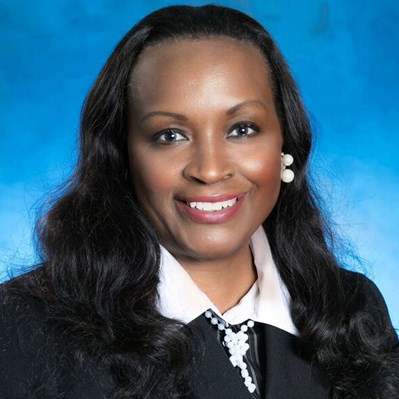
Interim Chancellor; Former: Vice Chancellor of Student Affairs, University of Wisconsin-Oshkosh, University of Wisconsin Whitewater
Oshkosh, Wisconsin
Office Representing: Student Affairs
Before accepting her position as the interim chancellor of University of Wisconsin Whitewater, Cheryl Green served as the vice chancellor of student affairs at the University of Wisconsin-Oshkosh where she supervised many areas, including admissions, financial aid, career services, counseling, student health, the child care center, student recreation and wellness, student government, student conduct, auxiliary services, and residence life. Her professional service to higher education spans three decades and includes a variety of administrative roles at five public universities. She has served as a director, academic chair, dean, tenured associate professor, assistant vice president, and interim vice president of student affairs. Green received a bachelor's from Manchester University in Indiana and a master's and doctorate, both in counseling psychology, from Southern Illinois University. Throughout her professional career she has been engaged in teaching, research, grant writing, and developing innovative student retention initiatives.
How did you first get interested in or involved in higher education issues?
"My interest in the welfare and achievement outcomes for students actually started quite early," Green said. "My first job as a teenager was as a paid reading tutor for the Chicago Board of Education. I was 16 years old. I believe this is when I began to understand that anyone can and should learn. At around the same time in my life, I decided that I wanted to become a psychologist. As I pursued my studies and degrees, I consistently focused on how I could help others transcend their current circumstances and become more empowered to live fuller and healthier lives. Serving in the role of staff psychologist for over 15 years positioned me to become very knowledgeable about the daily challenges, problems and issues that students face while pursuing their college degrees. I soon realized that I could help more students if I transitioned from a practitioner role to an administrative role. I could then better control the design of policies, procedures and resources that could positively impact students' lives. This would then facilitate their continued matriculation towards degree completion."
Why did you apply to be a part of the Higher Education Committee of 50? What drew you to this opportunity?
"The reauthorization of the Higher Education Act, and other congressional laws, play a pivotal role in determining the accessibility and affordability of a college education," Green said. "Obtaining a college education has always been an instrument of upward social mobility and improvement to the quality of life for American citizens. It is incumbent upon professional educators, administrators and the public at large to coalesce and advocate for the development and implementation of progressive policies that meet the needs of today's students as they strive to enroll, persist and progress in college. When students fail to achieve, we all fail. As I have dedicated over three decades of my professional career towards maximizing the opportunity for all people to obtain a college degree, I have continuously sought, promoted and developed innovative ways for students to afford the rising cost of college tuition. Mostly, this has been accomplished through advocacy, sponsorship and successful grant writing. I am eager to join the team of professionals on the [Higher Education Committee of 50] who share my passion and dedication in pursuing all avenues for promoting greater access, affordability and accountability for the use of public, private and government resources, to fund the desired outcomes related to student achievement and success."
Leadership roles with professional associations:
Membership(s) held with other professional associations: